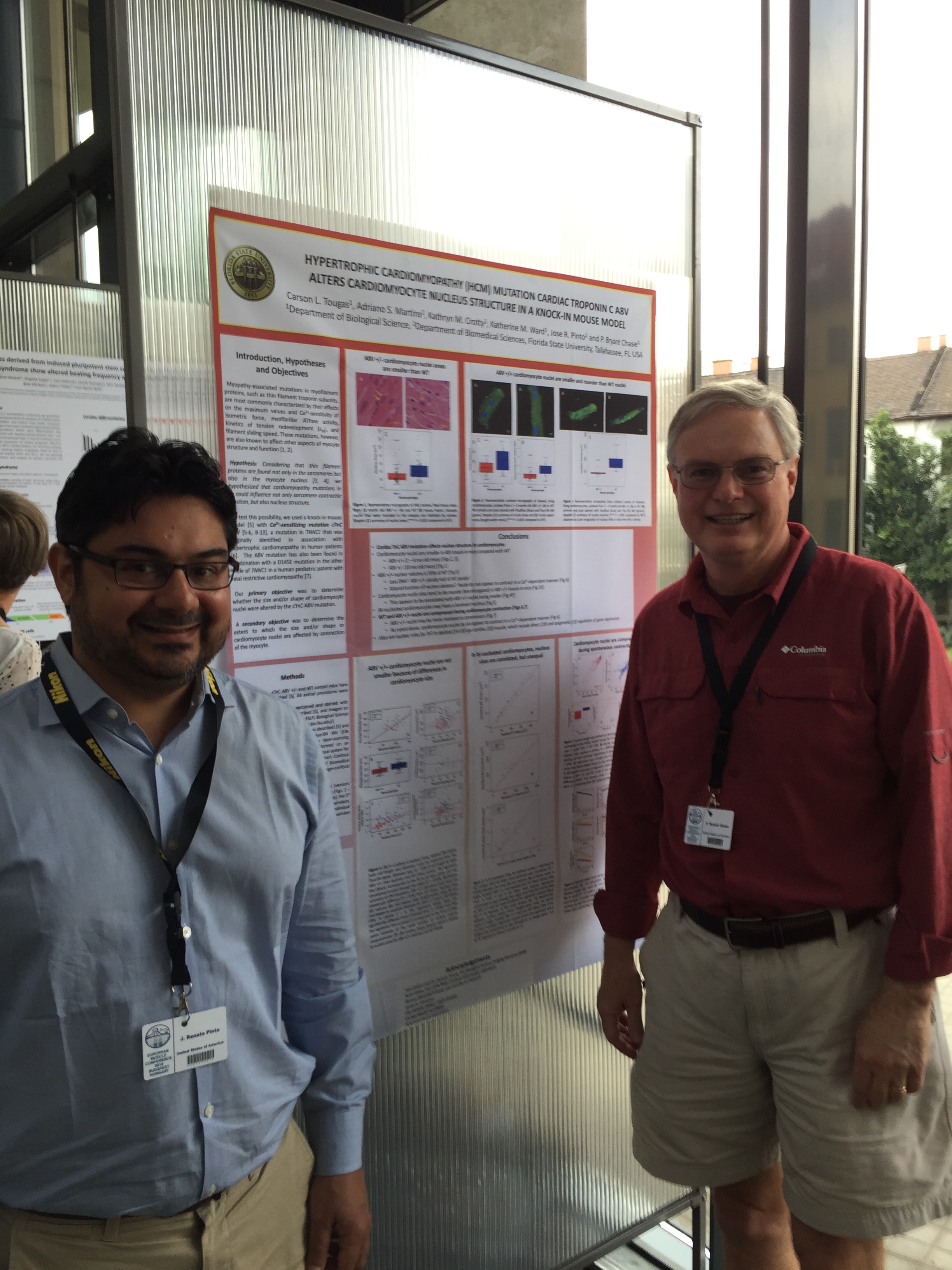
Delineate the pathogenic mechanisms in human models of inherited cardiomyopathy caused by TNNC1 variants. Among thin-filament protein variants, TNNC1-positive probands typically demonstrate the youngest age of presentation and the highest death, transplant, or ventricular fibrillation events. Our group has been instrumental in functionally characterizing HCM- and DCM-associated TNNC1 variants in vitro. We have also developed the first HCM TNNC1 knock-in mouse model and have demonstrated that the cTnC A8V variant can indeed manifest a cardiomyopathy phenotype in mice. Recently, trio whole exome sequencing revealed a previously unreported de novo variant in TNNC1 and the proband was negative for variants in all of the other sarcomeric proteins. Further functional analysis revealed the potential molecular mechanism for his likely pathogenic variant. Since TNNC1 variants associated with cardiomyopathy are rare and most often arise on the de novo basis, it is imperative to determine if they can trigger biophysical alterations and cellular remodeling in a “humanized” model system. The postdoctoral fellow will test the hypothesis that TNNC1 variants associated with HCM or DCM in humans induce morphological and functional alteration in hiPSC-CM compatible with their disease phenotypes.
- Is TNNC1 a veritable cardiomyopathic gene in human cardiomyocytes? If so, is it through myofilament dysfunction and/or a non-canonical mechanism(s)?
- Do TNNC1 variants in the same α-helix of the protein lead to HCM and DCM phenotype in hiPSC-CM?
- Do TNNC1 variants cause inherited cardiomyopathy in humans in an autosomal dominant or recessive manner?
- Can TNNC1 variants alter cross-bridge kinetics in hiPSC-CM (i.e. thin-to-thick effect)? We reported that the TNNC1 A8V variant increases the kinetics of contraction in murine cardiac preparations. Since mice and humans display such different kinetics of contraction due to the heartbeat frequency, it is crucial to determine whether the same variant can produce similar effects in human cells.
Muscle biophysics, cell and molecular biology, proteomics and pathophysiology. The laboratory is equipped with state-of-the-art infrastructure and supported by outstanding FSU Core facilities. The laboratory offers abundance of multidisciplinary research and training opportunities with two well-established mentors. Highly motivated individuals with demonstrated research experience and interest in molecular and cellular cardiology.
